Pancreatic Cancer Symptoms
The symptoms listed below are some of the main signs of pancreatic cancer.
If you have persistent or worsening symptoms that are not usual for you, then you should visit your GP or call NHS 111 to investigate.
You may not have all these symptoms and they may come and go, varying in severity.
Click on each of these pancreatic cancer symptoms to learn more:
-
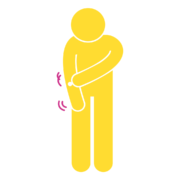
Yellowing of the skin and whites of the eyes, and/or very itchy skin.
-
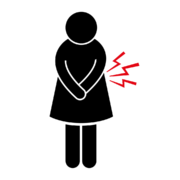
Which may radiate to the back.
-
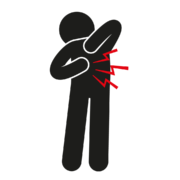
Where a bra strap would sit and may be eased by leaning forward.
-
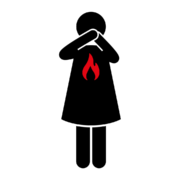
Not responding to medication.
-
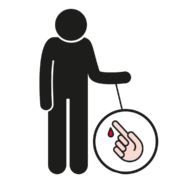
Not associated with weight gain
-
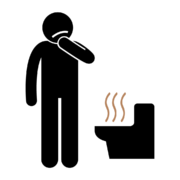
A change in the way you poo
-

Weight loss without trying.
What should I do if I am experiencing pancreatic cancer symptoms?
It is important to remember these symptoms can be caused by many different conditions, including irritable bowel syndrome or indigestion, and aren’t usually the result of cancer.
However, if you or a loved one regularly experience one or more of these identified pancreatic cancer symptoms which are not normal for you, do not ignore them, contact your GP straight away.
Jaundice
Jaundice is common in people with pancreatic cancer. It develops when the bile duct becomes blocked by the tumour and yellow pigment (bilirubin) that is normally excreted (passed) builds up in the body. Jaundice may be painless, but it can be very itchy and irritating. It can also make the skin feel hot and uncomfortable leading to itchiness; this is called pruritis. Jaundice can also cause nausea and vomiting as well as digestive problems and tiredness.
How do I know I have this?
The most obvious sign is yellowing of the skin and whites of the eyes: Jaundice may also cause your urine to be dark yellow and/or itching of the skin. You should seek urgent medical advice if you are worried that you have the signs of jaundice. You will need to be referred for tests to identify the cause. NICE (The National Institute for Health and Care Excellence) guidelines suggest that anyone with jaundice should be investigated further.
More information on jaundice in pancreatic cancer patients.
Upper abdominal pain or discomfort
Abdominal (tummy) pain or discomfort is one of the most common symptoms and one of the first symptoms to often present itself.
The pain or discomfort can be caused by the tumour invading nerves or organs that lie near the pancreas. The pain or discomfort is usually felt above the belly button and below the breast area (called the epigastric region). However, some patients report they have pain and discomfort without a specific location.
Having tummy pain or discomfort is a common symptom for many diseases and does not mean you have pancreatic cancer. However, if this is new and unusual for you or combined with other symptoms you should visit your GP to check.
Mid-back pain or discomfort
The pain can be caused by a tumour invading nerves or organs that lie near the pancreas. Some people also report that they feel pain in their shoulder or under their shoulder blade. Other people feel pain in their back and abdomen (tummy) at the same time.
Back pain is experienced by people in the population and having mid-back pain does not mean you have pancreatic cancer. However, if you are experiencing mid back pain (in the region just below your shoulder blades) that is not normal for you, there is no harm in checking with your GP – especially if you are experiencing any of the other symptoms described here. If you are experiencing any of the other symptoms described here, you should tell your GP to reinforce your concern of pancreatic cancer.
Changes in bowel habit
People with pancreatic cancer sometimes experience constipation (when your stools are very firm and difficult to pass, sometimes accompanied by stomach pain) or diarrhoea (passing of watery stools more than 3 times a day). Stools can also be large, pale, smelly and float. This is because there is too much fat in the stool as food is not digested properly.
Constipation and diarrhoea are quite common. However, if a change in your bowels keeps happening or lasts longer than a week, discuss this with your GP. It does not mean you have pancreatic cancer but is important to investigate and your GP may be able to resolve your symptoms easily.
Indigestion
After you eat or drink you may feel a burning or uncomfortable feeling in your chest. This may be accompanied by feeling or being sick or you may feel bloated and repeatedly burp or pass wind. Most people experience this from time to time and it is not something to worry about. However, if indigestion continues despite treatment from a pharmacy or your GP it could be a sign of pancreatic cancer.
The above symptoms are signs of indigestion. If you keep having this, and it is unusual for you or you are experiencing it alongside other symptoms described here, discuss this with your GP. If treatments for indigestion are not working, it is also important to discuss this with your doctor.
Loss of appetite
This is when you don’t really feel like eating, or you feel full after eating only a very small amount of food.
Loss of appetite does not mean you have pancreatic cancer; it is a common symptom of many diseases. Many of the symptoms of pancreatic cancer can cause loss of appetite. But these are often not due to cancer. For example, constipation, weight loss or vomiting and diarrhoea. However, if you experience this, together with any of these other symptoms, it is worth going to your GP to try to find out the cause.
Nausea and vomiting
Nausea (feeling sick) is when you feel uneasy, discomfort and disgust towards food like your stomach is churning. Sometimes you can also have a mild headache feeling. Vomiting is when you uncontrollably release the contents of your stomach out of your mouth. Often these symptoms will pass in a few days and are not anything to worry about.
If this is not normal for you and keeps happening, this may be something to start being aware of and monitor. Using our symptoms diary may be helpful and you can show this to your GP.
Diabetes
Diabetes is when the body is not regulating its blood sugar levels properly. When we eat, the pancreas makes enzymes and hormones to digest food and sugar (glucose) is produced. Blood sugar levels are regulated by insulin, a hormone generated in the pancreas. If your body cannot use its own insulin effectively, type 2 diabetes develops. Your blood sugar becomes too high.
If your type 2 diabetes has developed recently and cannot be explained by your lifestyle or diet (you are not overweight), it can be a symptom of pancreatic cancer. Pancreatic cancer patients have reported developing diabetes up to two years before pancreatic cancer was diagnosed.
What are the signs you may have diabetes?
- Urinating more often than usual, particularly at night
- Extreme tiredness/ fatigue
- Unexplained weight loss
- Cuts or wounds that heal slowly
- Blurred vision
- Itching around the penis or vagina and frequent episodes of thrush
Diabetes is not always a symptom of pancreatic cancer; the two diseases are linked but exactly how remains unclear. However, if you do have any of the symptoms of diabetes it is still important to see your GP as untreated diabetes can be a risk to your health. Pancreatic cancer can also cause type 3c diabetes which may be misdiagnosed as type 2. This is diabetes caused by damage to the pancreas, such as surgery.
Fatigue
This is when you feel very tired or exhausted most, if not all, of the time. This can be described as a lack of energy and motivation (physical and mental). It also does not go away with sleep, and people describe it as different to tiredness they have experienced before.
Fatigue can be a consequence of many medical conditions, such as depression, as well as cancer. Fatigue can also range in its severity. If your fatigue is not normal for you and is not being caused by a stressful or upsetting period in your life this may be a sign of cancer, and you may wish to discuss this with your GP.
Unexplained weight loss
This is often one of the first problems patients tell their doctors about. Losing weight is cause for concern if it was unintentional or you do not know why it has happened. The unexpected weight loss associated with pancreatic cancer can occur without any pain or apparent change in digestion. You may have a good appetite but still be losing weight.
How do I know if I have this?
You may be able to tell if you have lost weight without weighing yourself on scales. If clothing or jewellery feels loose or people comment on your weight loss. Unexpected weight loss can be a sign of several diseases, so you should see your GP to investigate why this is happening to you. Guidelines suggest that those over 60 with weight loss and any of the following should be sent for a CT scan:
- Diarrhoea, back pain,
- Abdominal pain,
- Nausea,
- Vomiting,
- Constipation,
- Diabetes that has developed recently.
If this applies to you, it is important you see your GP to investigate the cause.
We may all experience these symptoms from time to time but what is important is the combination of symptoms we experience. If you are experiencing a variety of these symptoms simultaneously, it is important to relay this to your GP or health professional to reinforce why you are concerned about pancreatic cancer. Try our symptoms diary to track your symptoms as evidence for your GP here.
Investigating pancreatic cancer symptoms
Investigating pancreatic cancer can be a complex process. If you are concerned about your symptoms, it may be helpful for you and your GP to track your symptoms using our symptom diary.
When your GP examines you, they may look for jaundice (yellowing of the skin and whites of the eyes), feel your tummy and send blood or urine samples to be analysed. If your symptoms include abdominal (tummy) pain, weight loss and jaundice together then you should be referred to the hospital as urgent. This does not mean that you certainly have pancreatic cancer, but your symptoms need to be investigated quickly.
Testing for pancreatic cancer
Once you have been referred to the hospital, you may encounter several healthcare professionals (e.g., oncologists, specialist nurses, radiologists) who each ask for more tests, your personal history and ask you many questions.
This helps to decide what tests you may need. Often people with pancreatic cancer are diagnosed after visiting an accident and emergency department. This may be because your symptoms have deteriorated quickly or started very suddenly.
Whether you are investigated for pancreatic cancer through a GP referral or the hospital, the diagnosis is similar. You will be referred to a gastroenterologist or another specialist to carry out tests and try and find out what is causing your symptoms.
Click here for diagnosis investigations into pancreatic cancer symptoms in more detail.
Waiting for results
Waiting for test results can be a nervous time and fear of the unknown is understandable and perfectly normal. You may feel anxious and afraid, but you may also feel in denial, numb or guilty that you put off going to the doctors for too long and now may be seriously ill.
You may imagine the worst-case scenario and worry about how your friends and family may cope. Waiting, especially for a long time, is a difficult experience and the lack of control over your life can cause serious stress and anxiety. Some people say that waiting is the hardest part, in fact, research has shown that waiting for test results or a diagnosis makes people feel worse.
How to cope during this time of uncertainty depends on you as a person but there are ways of dealing with things to support you whilst you wait.
- It may help you to remember to live in the moment and focus on what you know now and not what might happen next.
- You could try to find out as much about the possibilities as you can to feel empowered about what is happening to you.
- Keeping distracted can take your mind off waiting through helping others, physical exercise or hobbies you enjoy may help.
- When you do have appointments, it may help to bring someone else along with you. They may remember symptoms, questions, and information that you have not.
- Finally, it is important to realise that your feelings are completely normal. You are not being irrational or unreasonable. You are going through a difficult time, and you are encouraged to take time for yourself whenever you need it.
Try to keep communicating with friends and loved ones about how you feel. It will help you feel less alone, and it is likely that they are experiencing many of the same feelings as you.
Pancreatic Cancer Action publishes patient information booklets about pancreatic cancer and its treatment at different stages. This information will help you to understand your diagnosis, and what happens next.
Click here to view our patient information booklets, for more information on pancreatic cancer symptoms, diagnosis, chemotherapy & more.



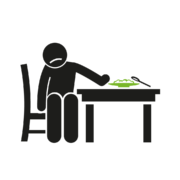

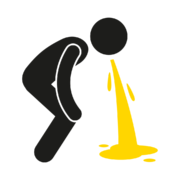






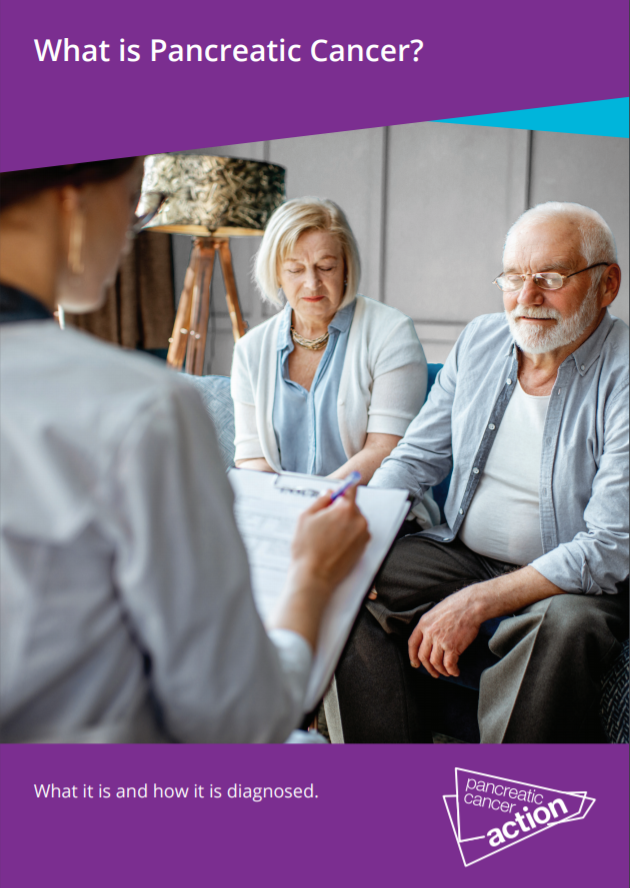

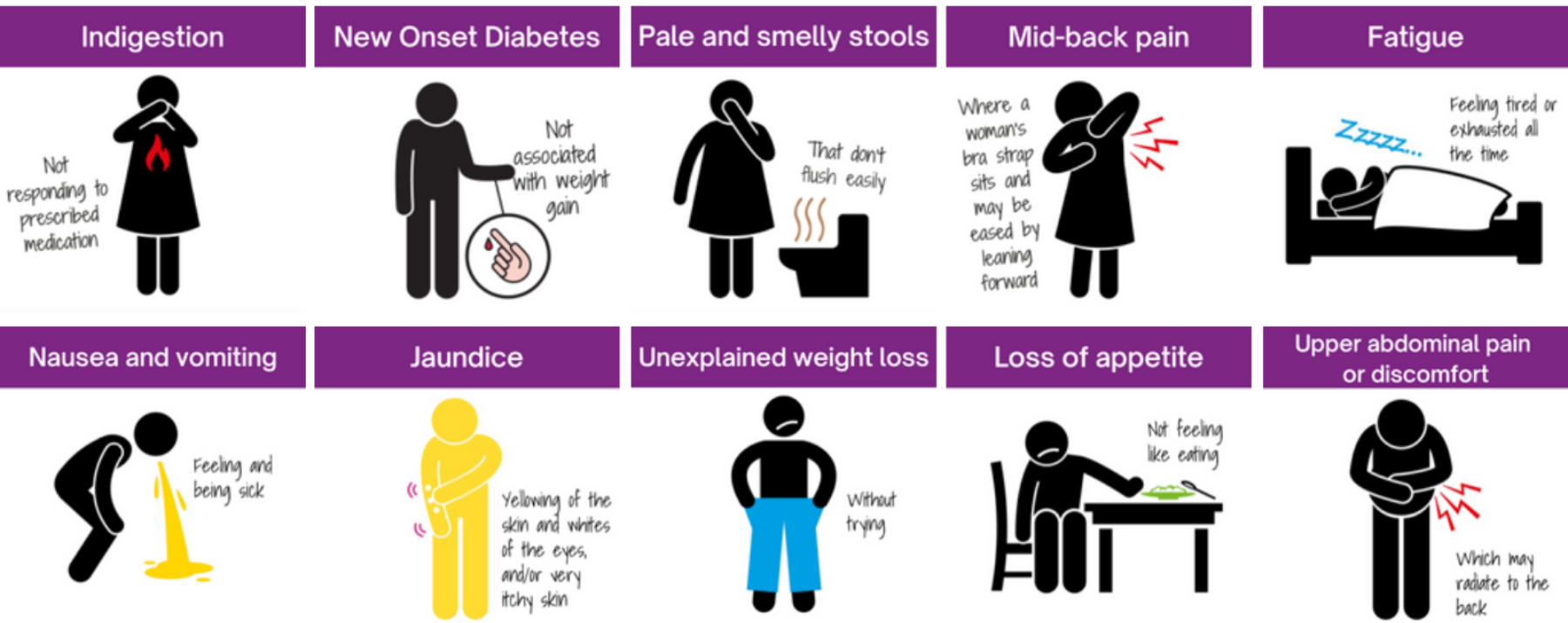
 The information provided in this site, or through links to other websites, is not a substitute for medical or professional care and should not be relied upon as such.
The information provided in this site, or through links to other websites, is not a substitute for medical or professional care and should not be relied upon as such.